Person: Brittany Fox
Drink: Homebrewed decaf coffee
Date: September 1, 2011
Location: via Skype from East Lansing, MI
…
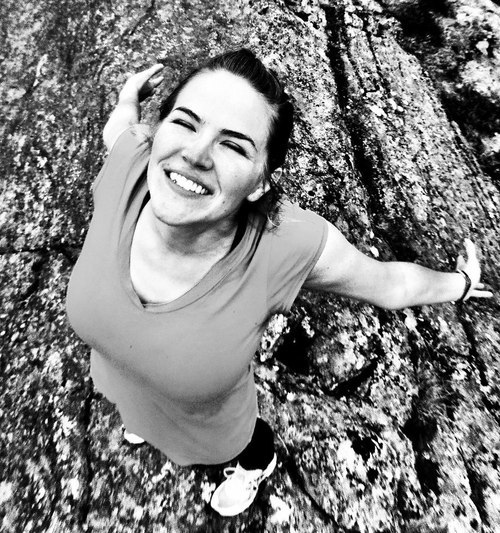 If you convince yourself something won’t work and never try—you might miss out on something incredible.
If you convince yourself something won’t work and never try—you might miss out on something incredible.
…
Brittany Fox has traveled to a lot of cool places.
However, in all of her travels, she never found a city she could envision herself moving to. She liked Michigan and that is where she wanted to stay.
Until she went to Thailand.
After high school, Brittany was interested in doing humanitarian work. She found a program that would allow her to spend her summer volunteering in several different countries, which is how she ended up in Thailand.
It was love at first sight.
…
Brittany was relaying this story to me via Skype. She was in her apartment in Bangkok preparing for a full day of work. I was at a kitchen table in Michigan relaxing before heading to bed. The Internet connection wasn’t ideal but it held up long enough to hear her story.
When Brittany arrived in Pattaya, Thailand she felt something she had never felt during her previous travels—a sense of connectedness. A thought from out of nowhere entered her head, “I could live here.”
But the thought didn’t linger long—she had work to do.
She was volunteering with YWAM Thailand, which is a center that provides help, healing and hope for women caught in Thailand’s large prostitution industry. According to their website, Pattaya is known as Thailand’s number one sex destination. It is home to 20,000 male, female and child prostitutes that attract over one million visitors each year.
Many of the women share the same heart-breaking story—they were single mothers facing the challenge of raising their children and taking care of their aging parents. As the financial pressures increased, they felt powerless; they felt there was no option other than prostitution.
YWAM works to help these young women by providing them with an education and opportunities to find a job outside of prostitution. Brittany’s role was to go into bars and clubs during the day to talk with the young girls about the organization and the opportunities available. It was a bold action on Brittany’s part and one that taught her something truly amazing.
Her preconceived notions about prostitution—the type of women involved, their morals, personalities, etc.—were dispelled completely. Instead of meeting disreputable women like she expected, she met smart, hardworking women trapped in a terrible situation because of financial troubles.
She listened with compassion as one after another told the story of how they came to prostitution. It seemed that each story involved an “end of the rope” moment; an unfortunate turn of events that left them convinced prostitution was the only option.
Those “end of the rope” moments stuck with Brittany. She couldn’t stop thinking about what would be possible if an organization could reach out to those women during those moments and prevent them from going down that dark road.
…
It was a thought that stayed with her as she returned to the States to study International Relations at Michigan State. When she got home, the first thing she did was buy a Thai language book—she knew that as soon as she graduated she would be back in Thailand.
And she was. With $300 dollars left in her bank account she boarded a plane for Bangkok. She figured that would be enough money to survive for two months while she searched for a job with a non-profit or non-governmental organization in the area.
…
For a while she actually played around with the idea of starting her own business, but it was always more of a daydream than an actual desire. A few years before, her brother bought her a tote bag crocheted with recycled plastic bags. She loved the uniqueness of the bag and often received compliments from people while wearing it.  Her brother was also doing humanitarian work in Thailand. He fell in love with it after volunteering in a refugee camp after the tsunami in 2004. He knew how much Brittany liked the bag and pointed out that it wouldn’t be hard to make one herself—in fact, it might just be a great business opportunity for her. Brittany liked the idea and had fun brainstorming about how she would start the company, but that’s as far as the idea went. Brittany didn’t believe in herself enough to take the next step, to turn the idea into action. She wasn’t crafty, she had never taken a business class—she didn’t have the skills to make it happen. Plus, she had school loans to pay so getting a job with a larger organization would be “the responsible thing to do.”
Her brother was also doing humanitarian work in Thailand. He fell in love with it after volunteering in a refugee camp after the tsunami in 2004. He knew how much Brittany liked the bag and pointed out that it wouldn’t be hard to make one herself—in fact, it might just be a great business opportunity for her. Brittany liked the idea and had fun brainstorming about how she would start the company, but that’s as far as the idea went. Brittany didn’t believe in herself enough to take the next step, to turn the idea into action. She wasn’t crafty, she had never taken a business class—she didn’t have the skills to make it happen. Plus, she had school loans to pay so getting a job with a larger organization would be “the responsible thing to do.”
So she ditched the idea and jumped into a job search.
But then something happened. Her roommate Panida, a Thai woman she met at Michigan State, came home with devastating news. Her supervisor had come to her in tears—she was struggling to make ends meet at her current job and had decided to start prostituting.
She was at the end of her rope.
Brittany knew she had to do something. This was her chance to intervene before it was too late.
The idea of starting a company reemerged. She still wasn’t convinced it would work but she decided to try. She bought the needed materials, found instructions online and sewed, “the world’s ugliest little bag.” But it was a completed bag. And it was a start.
Panida joined Brittany in her efforts. They approached her supervisor about the possibility of working for their new company making bags.
She quickly said no.
Like Brittany, she didn’t believe in herself. She didn’t know how to make a bag and she was afraid to try.
Brittany and Panida didn’t give up. They told her they would leave her the supplies and instructions and encouraged her to give it a shot. When they returned a week later, the supervisor opened the door with a big smile on her face. She held up a completed bag with pride in her eyes—she had proved to herself she could do it. And although it was also “one of the world’s ugliest little bags,” it was a start.
Sometimes, that’s all you need.
With practice they began making beautiful bags that now sell in the United States, United Kingdom and online through Brittany’s company Thai Song. The company she thought would never work is about to celebrate its second anniversary. More importantly, they employ six women that now feel empowered, dignified and confident.
…
Brittany Fox has already changed many lives—at the ripe old age of 24. Imagine how many lives she will touch in the coming decades of her life. Perhaps that’s why she felt so connected to Thailand when she arrived—it needed help and somewhere deep inside, Brittany knew she could provide it.
Cup 47 taught me the value of testing our assumptions instead of just assuming an idea won’t work.
Because Brittany could have stuck to the belief that her idea wouldn’t work: she could have listened to the people that told her the idea was destined to fail.
But she didn’t.
And now six women in Thailand are facing a much brighter future.
.
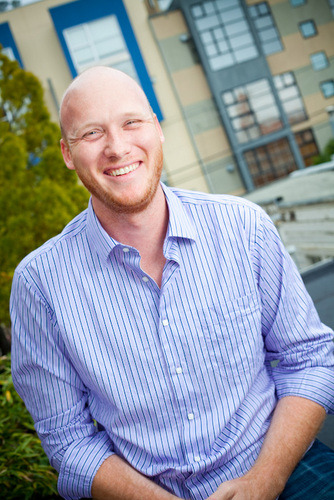 Bo Fishback is the self-proclaimed luckiest man in the world.
Bo Fishback is the self-proclaimed luckiest man in the world. 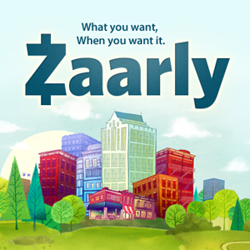 It helps that Bo (and his two co-foun
It helps that Bo (and his two co-foun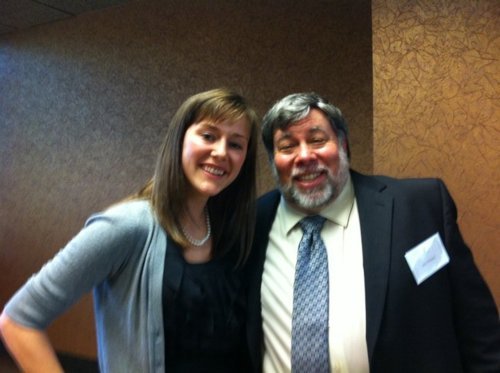 Around
Around  I was weary from travel when I rolled into Scotland at 10:30 pm but the beauty of the castle-lined landscape resting under a crescent moon restored my energy (finally understanding the local language also helped). After pausing to take a few photos and take in the moment, I headed toward the hostel I’d booked, making a quick stop inside a convenience store along the way for late-night snack.
I was weary from travel when I rolled into Scotland at 10:30 pm but the beauty of the castle-lined landscape resting under a crescent moon restored my energy (finally understanding the local language also helped). After pausing to take a few photos and take in the moment, I headed toward the hostel I’d booked, making a quick stop inside a convenience store along the way for late-night snack. 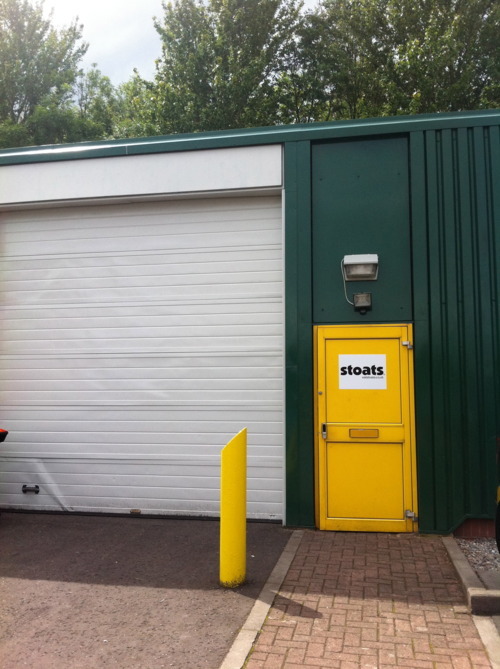 When I arrived at the Stoats headquarters in the outskirts of the city I wasn’t sure I was in the right spot. But then I noticed the small white Stoats sign on a door nestled between a handful of larger manufacturing shops. I cautiously opened turned the handle and walked inside to find a simple setting—large bags of raw oats, stacks of cardboard boxes, various flyers on the walls. Basically what you would expect from a manufacturing plant if they spent any time imagining what a manufacturing plant might look like.
When I arrived at the Stoats headquarters in the outskirts of the city I wasn’t sure I was in the right spot. But then I noticed the small white Stoats sign on a door nestled between a handful of larger manufacturing shops. I cautiously opened turned the handle and walked inside to find a simple setting—large bags of raw oats, stacks of cardboard boxes, various flyers on the walls. Basically what you would expect from a manufacturing plant if they spent any time imagining what a manufacturing plant might look like.